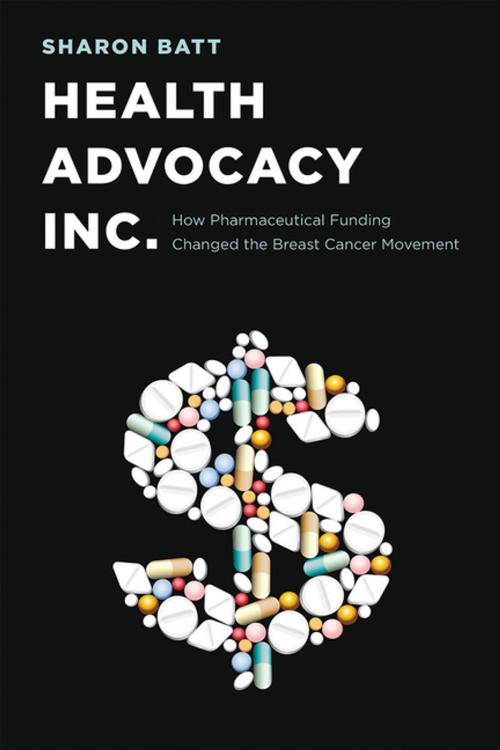Health Advocacy, Inc.
How Pharmaceutical Funding Changed the Breast Cancer Movement
Business & Finance, Industries & Professions, Nonprofit Organizations & Charities, Nonfiction, Health & Well Being, Health, Ailments & Diseases, Cancer, Social & Cultural Studies, Social Science| Author: | Sharon Batt | ISBN: | 9780774833875 |
| Publisher: | UBC Press | Publication: | June 15, 2017 |
| Imprint: | UBC Press | Language: | English |
| Author: | Sharon Batt |
| ISBN: | 9780774833875 |
| Publisher: | UBC Press |
| Publication: | June 15, 2017 |
| Imprint: | UBC Press |
| Language: | English |
Over the past several decades, a gradual reduction in state funding has pressured patient groups into forming private-sector partnerships, raising an important ethical question: do these alliances ultimately lead to policies that are counter to the public interest? Health activist, scholar, and cancer survivor Sharon Batt examines the issue by investigating Canada’s breast cancer movement from 1990 to 2010.
Health Advocacy, Inc. dissects the relationship between the companies that sell pharmaceuticals and the individuals who use them, drawing links between neoliberalism and corporate financing and the ensuing threat to the public health care system. Combining archival analysis, interviews with advocacy and industry representatives, and personal observation, Batt argues that the resulting power imbalance continues to challenge the groups’ ability to put patients’ interests ahead of those of the funders. A movement that once encouraged democratic participation in the development of health policy now eerily echoes the demands of the pharmaceutical industry. Batt’s thorough account of this shift defines the stakes of activism in public health today.
Over the past several decades, a gradual reduction in state funding has pressured patient groups into forming private-sector partnerships, raising an important ethical question: do these alliances ultimately lead to policies that are counter to the public interest? Health activist, scholar, and cancer survivor Sharon Batt examines the issue by investigating Canada’s breast cancer movement from 1990 to 2010.
Health Advocacy, Inc. dissects the relationship between the companies that sell pharmaceuticals and the individuals who use them, drawing links between neoliberalism and corporate financing and the ensuing threat to the public health care system. Combining archival analysis, interviews with advocacy and industry representatives, and personal observation, Batt argues that the resulting power imbalance continues to challenge the groups’ ability to put patients’ interests ahead of those of the funders. A movement that once encouraged democratic participation in the development of health policy now eerily echoes the demands of the pharmaceutical industry. Batt’s thorough account of this shift defines the stakes of activism in public health today.















